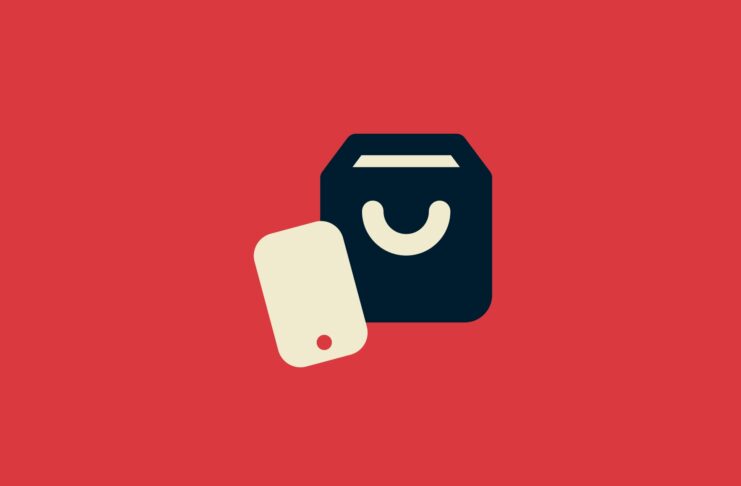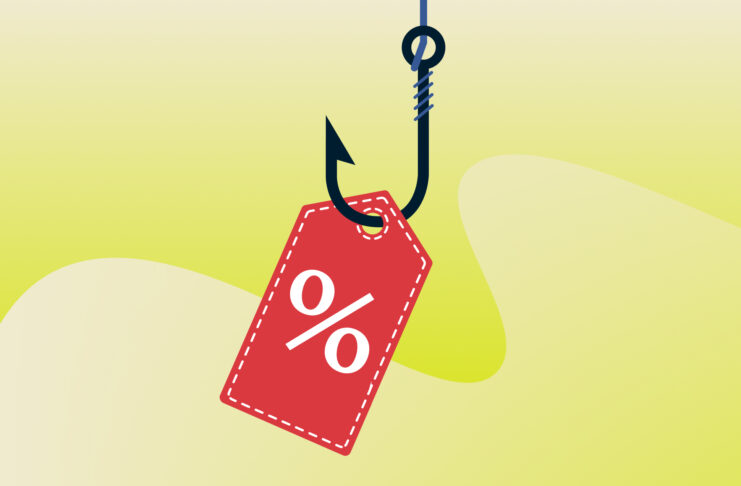Does that celebrity-endorsed crypto ad you saw on Instagram sound too good to be true? It’s very likely because it’s a scam. And you should think very carefully about clicking on it—never mind investing your money. (If you do decide to click on it, make sure to switch your VPN on first to mask your IP address.)
Scammers know we love to follow the lives and careers of our favorite celebrities, sports stars, and actors. This is why they only need to dupe even a tiny percentage of a celebrity’s substantial online following to make their shady schemes worthwhile.
[Get the latest privacy news in your inbox. Sign up for the ExpressVPN Blog Newsletter.]
Here are six celebrities who either made dubious sponsorship decisions or had their names used by scammers to lure in fans.
Read more: Before you download: Is that app a scam?
1. Anna Kendrick: Scammers’ favorite clickbait
The lure of celebrities has been a valuable tool for cybercriminals who want to extract users’ personal information through malware and malicious sites. According to a study by McAfee, no celebrity posed a greater threat to internet users in 2020 than Anna Kendrick: Searches for Kendrick online returned the most results of malicious sites, which usually purport to offer free content associated with her, including movies, TV shows, and music.
Sean “Diddy” Combs and Blake Lively took second and third place, respectively, in the study. Waiting for official releases of movies and TV shows instead of using third-party streaming sites that could contain malware is the safest thing to do to avoid having your personal information compromised.
2. Kim Kardashian’s EthereumMax post
Reality-TV star Kim Kardashian made headlines when she promoted a little-known, new cryptocurrency, EthereumMax (not to be confused with a different and very legitimate cryptocurrency, Ethereum), in what the crypto community and financial regulators have likened to a typical pump-and-dump scheme.
“Are you guys into crypto????” Kardashian asked her 200+ million followers on Instagram before shilling statistics about the new token and calling on her followers to “join the EthereumMax community.” Buried at the end of the post among a slew of hashtags was a small #ad marking the post as paid promotion.
The episode is a reminder that crypto scammers routinely pay social-media influencers to publicize their pump-and-dump tokens. Typically, the value of these tokens skyrockets following the promotion before plummeting as developers cash out. Indeed, the price of EthereumMax tanked not long after, and as of the time of writing, hovers 96% below the all-time high it hit following Kardashian’s post.
Read more: When catfish meets crypto scam on dating apps
3. DJ Khaled’s shady ICO promotion
Co-opting celebrities to promote new cryptocurrencies has long been a tactic of scammers. During the “initial coin offering” (ICO) boom of 2017, DJ Khaled landed in trouble in 2017 by not disclosing that his tweets about crypto company Centra Tech were paid promotions.
Khaled received 50,000 USD for his tweets, which helped Centra Tech’s ICO scoop 25 million USD from investors. The action was eventually deemed illegal, and Khaled (along with other celebrities, including boxer Floyd Mayweather) was fined by the U.S. Securities and Exchange Commission. Centra Tech co-founder Sam Sharma was sentenced to eight years in prison for his role in the scam ICO.
4. The many Bitcoin scams in Elon Musk’s name
Cryptocurrency giveaways are a common scam online. Though Elon Musk has made no secret of his support of cryptocurrencies, in July 2020, he found himself entangled in a high-profile Bitcoin scam sent from hijacked Twitter accounts of the likes of Barack Obama, Bill Gates, and Jeff Bezos.
The first tweet to go out was from Musk’s hacked account and read, “I‘m feeling generous because of Covid-19. I’ll double any BTC payment sent to my BTC address for the next hour. Good luck, and stay safe out there!” Needless to say, all the Bitcoin sent to these addresses was lost. According to Twitter, the hack originated from a social engineering attack on its employees.
Musk’s name was co-opted in another novel Bitcoin scam that year when a fraudster inserted his name into a Bitcoin vanity address (“1ELonMUskSEYstWetqTFn5Au4m4GFg7xJaNVN2”) to appear legitimate and conned 2 million USD worth of Bitcoin from users. Using the BitcoinAbuse website, Justin Lister, CEO of cybersecurity firm Adaptiv, traced over 60 addresses involved in similar scams, which received more than 201 in Bitcoin over just a couple of months.
5. Free-trial fraud featuring Ellen DeGeneres
Not long after marketers figured out that we love the idea of something for nothing, scammers soon followed. Which Ellen DeGeneres and Sandra Bullock discovered in 2019, when they sued a slew of pop-up companies fraudulently using their names in ads, often to sell free trials for anti-aging serums and weight-loss products.
Companies often make it difficult to cancel trials, while some consumers have complained of not even receiving the free samples before the deadline to cancel had passed, leading to exorbitant fees. Financial services company Bankrate has found that almost two-thirds of consumers who sign up for free trials end up with surprising charges.
The lesson here is to do your research and read the fine print. Search the company’s name online along with terms like “scam” or “complaint” to see if any problems have been reported. Check the records of organizations like the Better Business Bureau and the social media accounts of celebrities to see if they’re actually endorsing the product as advertised.
6. Snoop Dogg’s endorsement of a debt-relief scam
Snoop Dogg is no stranger to controversy, but in 2019, the rapper became the face of a debt-relief ad campaign that turned out to be a scam.
In dozens of appearances, the rapper claims users with at least 10,000 USD credit-card debt can “qualify for a program and get you thousands of your dollars back by making a 15-minute phone call.” The campaign was run by a supposedly “Christian-led” company called Debt Council and was plastered across Instagram and Facebook.
Of course, no such government debt-relief program existed. But the deceptive marketing was still able to push Facebook users with financial difficulties toward opaque debt-relief firms while also collecting contact information, addresses, and Social Security numbers, which could be sold to other predatory companies without consumers’ knowledge.






















